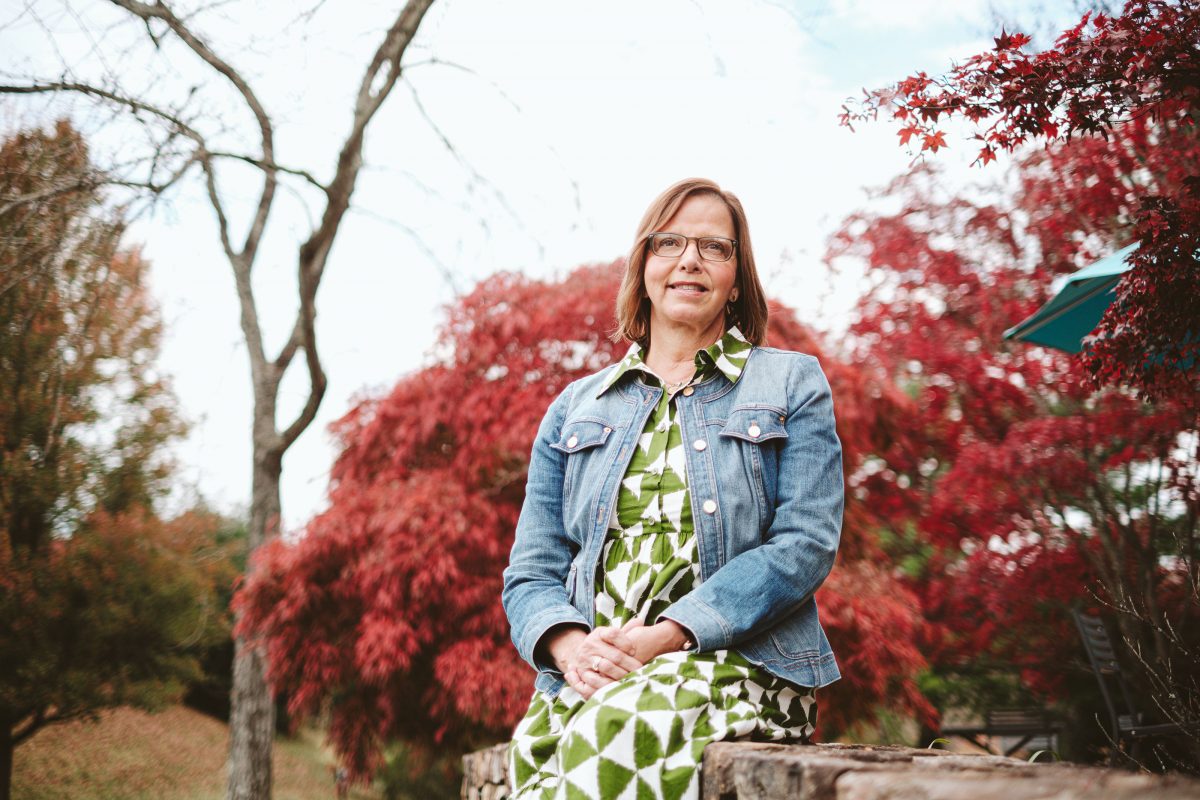Nancy Littlefield is a fourth-generation nurse, so it’s not surprising that she describes caring for people as “my calling.” What may be surprising is that her work as an ICU nurse, helping the sick and their families to heal and recover, led her to palliative care, helping the dying and their families through life’s last stage. That will be her focus as the new CEO for Hospice of the Piedmont.
“As an ICU nurse, you get lots of patients facing eternity, and you wonder how to help them,” Littlefield says. Spending time with patients and their families, learning more about their lives and talking about their needs, she says, “I became impassioned about that kind of care.”
Littlefield has amassed a broad range of experience in her over 30-year career. A New Jersey native, she earned her RN from Thomas Jefferson University in Philadelphia before moving to Virginia in 1987. She earned her bachelor’s in nursing from George Mason University, a master’s degree in health care administration from VCU, and a doctorate in nursing practice from Old Dominion University. Her career has covered the clinical and business aspects of health care, in both acute and long-term care. Most recently, she served as executive vice president and chief nursing officer for Riverside Health System, a network including five hospitals and nine long-term care facilities and hospice/palliative care services in southeastern Virginia.
While she clearly gets her vocation for nursing from her mother, Littlefield credits her father with sparking her career drive. “He was a huge influence,” she says. “He started as a draftsman, and ended up owning the company. One of his leadership lessons was ‘Act like you can handle more.’” That attitude led Littlefield to get a master’s in health administration rather than nursing—to learn more about the business side as well as the clinical aspects of health care.
Another of her father’s mantras was that problems are just an opportunity to find solutions, and Littlefield says that’s how she honed her business management skills—“through experience. Like going through the COVID pandemic—if that didn’t get you through how to handle [health care] problems!”
During her time at Riverside, Littlefield and her husband were thinking ahead to the next stage; their son and his now-wife both attended UVA, and the Littlefields decide to settle in the Charlottesville area. In 2019, they bought a lot in Keswick and built a home there. With her growing focus on end-of-life and palliative care, Littlefield thought she might end up volunteering for Hospice of the Piedmont, and got to know Ron Cottrell, who was then leading the organization. When he retired this year, Littlefield says, she thought, “Wait—is this a good fit for me?” She decided yes, and so did the hospice board.
Hospice and palliative care are in increasing demand, not only as the population ages but as awareness grows of the importance of quality of life. Hospice of the Piedmont serves more than 1,700 patients a year, according to Communications Manager Jeremy Jones—some in its eight-bed Hospice House and its 10-bed acute care center, but the vast majority in their own homes or assisted-care facilities. As a nonprofit, Hospice of the Piedmont cares for families across a broad socioeconomic range.
One misconception is that going into hospice means giving up. Quite the opposite, Jones says: Palliative care or hospice often enables patients to stabilize their condition and live longer and more comfortably. But number of days isn’t the focus—the goal is “taking care of patients and their families before, during, and after end of life—to walk through that process with them.”
Modern medicine can do amazing things, but there is a time when treatment can do little more. “Hospice is there to seamlessly take over then that time comes,” says Littlefield. “It’s always the patient’s decision—when to have palliative care help with symptom management, so you can do what you want to do with the time that’s left.”
“I’ve gotten so much from this work, the lessons these patients have taught me,” she says. “Those of us drawn to this work see working through the end of life as a privilege.”
